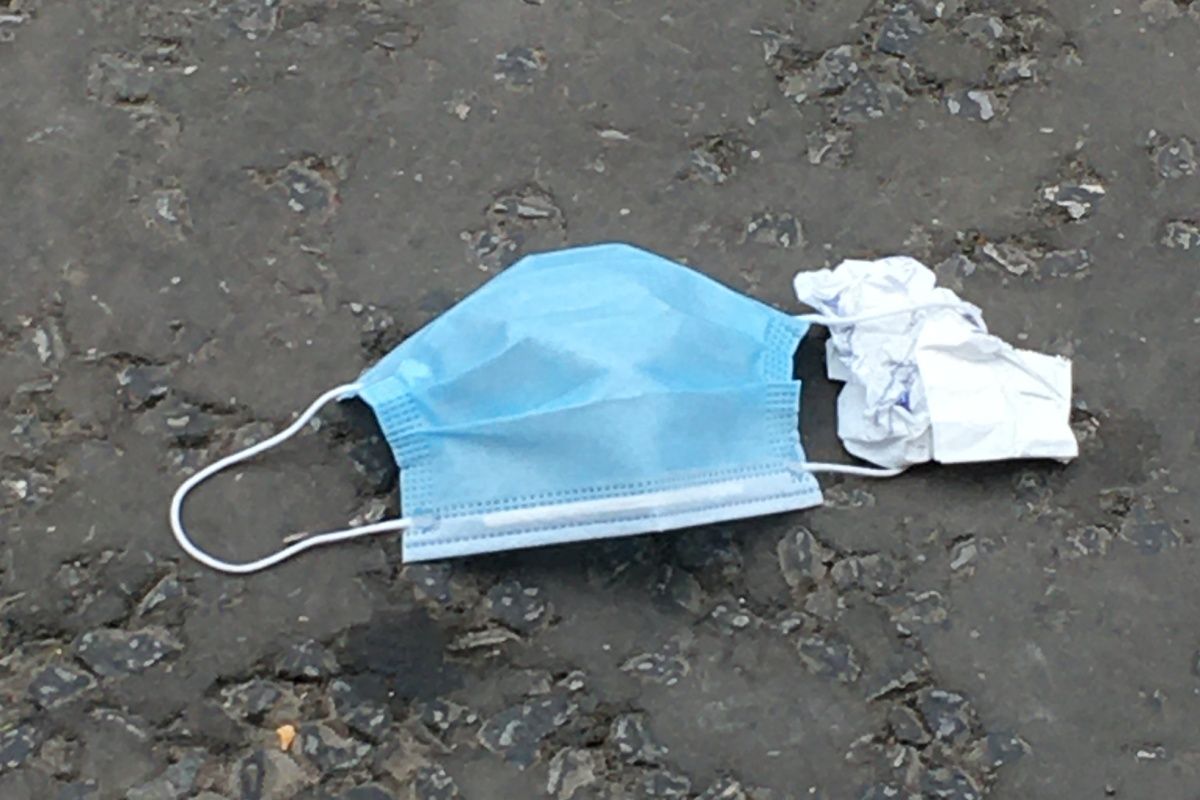
Coronavirus and the plastic industry
As the coronavirus pandemic grabs hold of the world, the plastic industry has seen a resurgence with single-use plastics increasing and waste beginning to pile up.
The comeback of single-use plastics
Over the past few months, there has been a huge increase in use of single-use plastic gloves, masks and plastic bottles of hand sanitizer. While these products are needed to help protect people from the COVID-19, they are also becoming the symbol of global plastic pollution in 2020.
Last walk, during my 15 minute walk to the local supermarket in Edinburgh, I passed two masks and five separate gloves lying on the pavement. The two masks were only a few metres from several communal bins, so there was no excuse for them to be thrown away. Not only is the increase in plastic pollution from these products an environmental concern, but it’s also unhygienic and not sanitary for these products to be discarded like that.

Over the past few years, we’ve made some real steps forward in the fight against single-use plastics. Reusable water bottles have become the norm, plastic stemmed cotton buds are banned in Scotland, and supermarkets have moved away from single-use plastic bags. We must make sure that as our society comes out of this pandemic, we do not reverse the positive long-term gains we had already secured in the battle against plastic pollution.
The current crisis is also having an effect on plastic policy in Scotland across the UK. The Circular Economy Bill, which was due to be introduced in spring 2020, has now been delayed indefinitely because Government resources are focused elsewhere. While this is understandable, it does mean that a key piece of legislation which would help us reduce our overconsumption of materials is no longer happening. For example, the Bill was due to include plans for a charge on disposable coffee cups to tackle the 200 million single-use cups used in Scotland each year.
Over the coming months, there is a risk that we could also see other plastic related policies cancelled or suspended, much like the forthcoming ban on cotton buds, straws and drink stirrers in England which has now been delayed by six months.
Managing our waste
Across Scotland, the collection of waste and recyclable materials has been subject to suspensions or delayed services. While restaurants, offices and schools are no longer generating waste, there is likely to be an increase in the waste being produced by individuals who are now staying at home.

People in affected areas have been asked to store their extra plastic and glass bottles until services resume. The problem with this is that it is only ever going to be a very short-term solution and works better for those in rural locations with more space. And there is a risk that when people run out of storage, these recyclable materials are likely to end up going into the waste bin ending up in landfills and incinerators. If you’re looking for tips on managing your waste during this crisis then check out these tips from Zero Waste Scotland.
The biggest lesson we can learn from this is that we do need contingency plans in place to protect frontline workers in the waste industry while still ensuring that our waste is being disposed of properly. And as we move on and recover from COVID-19, we need to look at how our municipal waste services were impacted by the crisis so we know how to prepare if another pandemic were to happen again.
A new market for the oil industry?
With oil consumption plummeting as there are less cars on the roads and almost no planes in the sky, the oil industry needs to find another buyer for their barrels. This could create further growth in plastic production as demand for single-use items grows.
The boom in plastic consumption is perfect for this industry, and some are using it to their advantage. Ineos, which is the largest producer of plastic in the UK and one of the largest in Europe, has now opened four hand sanitizer plants in England, Germany and France. While there’s no doubt that protecting people from the virus is vital, we must not forget that Ineos has been fueling the climate crisis with its overproduction of plastic, as well as polluting communities on both sides of the Atlantic ocean for years.
This global pandemic is unchartered territory for us all but we must make sure that as we move out of it to a greener, more circular economy we continue to fight against the plastic tide which is on the rise again.
Watch our recent webinar which looked at the impact coronavirus is having our our campaigning in Scotland and the plastic industry around the world.
